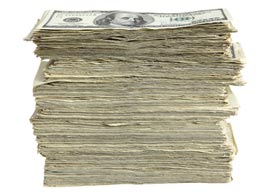
May 03, 2015

Source: Shutterstock
In the United States, the figures are somewhat less startling, but even in California, whose excise tax on cigarettes is only 33rd among 50 states, about a third of the price of a packet of cigarettes goes to government, state and federal. This is below the average for the U.S., which is slightly less than 44 per cent. When everything is taken into account, this means that government must be by far the greatest beneficiary of tobacco sales in the U.S..
But of course it cannot be sued in the same way as can private companies, even though it is the overseer and prime beneficiary of the whole industry. Large settlements against the companies in the U.S. were obtained by litigation, even though the contributory negligence of the litigants must have been at the least very great: one such litigant, for example, started smoking at the age of 13 when it is vanishingly unlikely that he did not know that he was not supposed to do so.
Since champerty (an agreement between the plaintiff in a lawsuit and another person, usually an attorney, who agrees to finance and carry the lawsuit) is legal in the United States, though intrinsically corrupt, the chief beneficiary of the litigation against the tobacco companies there were the litigation lawyers. In no case did the lawyers seek to bankrupt the company, or close the company down because of the evil it had done; for he who sues for a reasonable amount lives to sue another day. In effect, this litigation was the means by which the lawyers transferred the profits of the companies, or at least a significant proportion of them, from the shareholders of the companies to themselves.
I have no more love for the tobacco companies than for the banks. (Honesty compels me to confess, since we must reveal all our vested interests, that I once met the chairman of a large tobacco company, but I can no longer remember which, and derived no benefit from it other than the pleasure of his conversation.) Smokers irritate me with their presumption that their habit causes me no real inconvenience, and that if I complain about it I am being fussy or pernickety. I believe that my right to smoke-free air more than cancels out the right of a thousand, or a million, smokers to pollute the air around me “ though my objection to their smoke is more aesthetic than sanitary, and if it only harmed my health rather than my pleasure in the world I wouldn”t object to it at all.
But yet I believe that the litigation against the tobacco companies was corrupt and corrupting. It was the wave, or the harbinger, of the future, and no doubt governments will also try it on against the companies, such is the black hole in their finances caused by their improvidence.